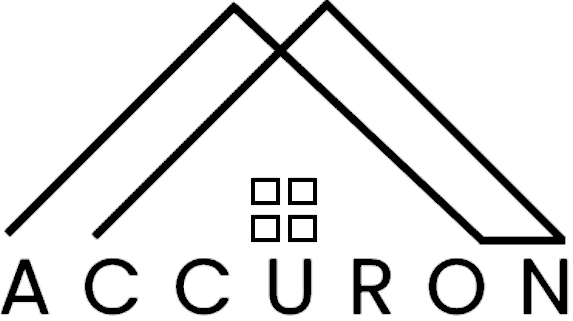
First Home Savings Account (FHSA) – 2025 Guide

Everything You Need to Know About the First Home Savings Account (FHSA)
For aspiring homeowners in the Greater Toronto Area (GTA), the path to ownership can feel overwhelming—especially with home prices frequently surpassing $800,000. Fortunately, the First Home Savings Account (FHSA) offers a powerful, tax-advantaged tool designed to help first-time buyers build a down payment faster and more efficiently.
What Is the FHSA?
The First Home Savings Account (FHSA) is a registered plan introduced by the Canadian government to help first-time buyers save up to $40,000 tax-free toward their first home. This account combines the best features of two existing savings tools: the Tax-Free Savings Account (TFSA) and the Registered Retirement Savings Plan (RRSP).
Key Features of the FHSA:
- Annual contribution limit: $8,000
- Lifetime contribution cap: $40,000
- Tax-deductible contributions: Reduce your taxable income
- Tax-free withdrawals: When used for a qualifying first home
- No repayment requirement: Unlike the Home Buyers’ Plan (HBP), funds do not need to be repaid
These features make the FHSA a standout option for younger buyers or anyone planning for homeownership in the near future.
Why the FHSA Matters in the GTA
In a market like the GTA, where entry-level homes often come with steep price tags, every dollar counts. Traditional down payments of 5–20% on a $700,000–$900,000 home can easily range from $35,000 to $180,000. With the FHSA, buyers can:
- Accelerate savings growth through tax deductions and investment options
- Avoid paying taxes on both contributions and qualified withdrawals
- Improve mortgage approval odds with a stronger financial profile
Who Is Eligible to Open an FHSA?
To open an FHSA in Ontario (or anywhere in Canada), you must meet the following criteria:
- Be a resident of Canada
- Be 18 years of age or older
- Be a first-time home buyer, defined as someone who has not lived in a home they owned—or that was owned by a spouse or common-law partner—in the previous four calendar years
This definition offers a fresh start for many who may have rented or lived in family homes up until now.
FHSA Vs. HBP
First Home Savings Account (FHSA):
The FHSA is a new savings tool designed specifically for first-time home buyers. It allows you to contribute up to $40,000 over your lifetime, with annual contribution limits. Contributions are tax-deductible, similar to an RRSP, and any withdrawals you make to purchase your first home are completely tax-free. One major advantage of the FHSA is that there’s no requirement to repay the funds you withdraw. Plus, you can invest your contributions just like with other registered accounts, helping your savings grow faster.
Home Buyers’ Plan (HBP – via RRSP):
The HBP allows you to withdraw up to $60,000 from your Registered Retirement Savings Plan (RRSP) to buy or build your first home. Like the FHSA, contributions to an RRSP are tax-deductible, and withdrawals under the HBP are tax-free—as long as you repay the full amount within 15 years. You can also invest the funds within your RRSP to earn returns over time, but unlike the FHSA, any money you withdraw must eventually be paid back.
💡 Pro Tip: You don’t have to pick just one. You can use both the FHSA and HBP together, giving you access to over $100,000 in combined tax-advantaged savings to help fund your first home purchase.
Can I Invest Inside an FHSA?
Absolutely. Like TFSAs and RRSPs, the FHSA is an investment vehicle—not just a savings account. You can hold a variety of investment products within your FHSA to potentially grow your funds over time:
- ETFs (Exchange-Traded Funds)
- Stocks
- Mutual Funds
- GICs (Guaranteed Investment Certificates)
This flexibility allows you to align your FHSA with your timeline and risk tolerance. If your purchase horizon is several years away, a well-balanced investment strategy could significantly boost your down payment.
How to Maximize the FHSA in the GTA Real Estate Market
In high-demand cities like Toronto, Mississauga, Markham, and Oakville, where competition and pricing are steep, using every advantage matters. Here’s how an FHSA helps you position yourself as a serious buyer:
- Grow your down payment faster
- Lower your annual tax bill through deductible contributions
- Potentially avoid CMHC insurance by reaching 20% down
- Increase your credibility when applying for mortgage pre-approval
It’s not just about saving—it’s about strategic saving.
When Should You Open an FHSA?
As early as possible.
Even if you’re not planning to buy this year or next, opening an FHSA allows your contributions to begin compounding sooner—both in terms of investment growth and tax savings. Plus, contribution room starts accumulating once the account is opened, not when you decide to buy.
The earlier you start, the more you benefit.
Final Thoughts
The First Home Savings Account is a game-changing opportunity for first-time buyers, especially in Ontario’s high-stakes real estate markets. With the ability to grow your down payment tax-free while reducing your taxable income, the FHSA is a cornerstone of smart financial planning for homeownership.

